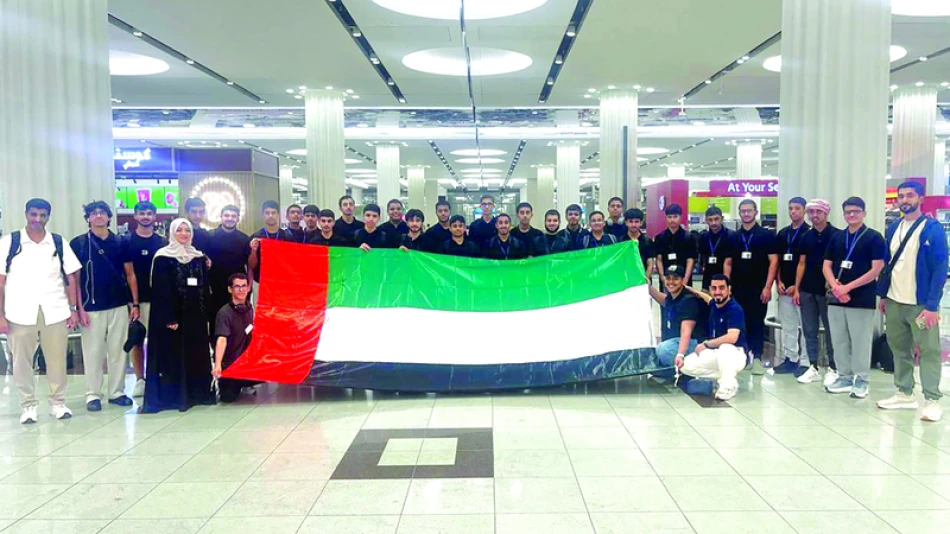
Unlock a World of Possibilities: Ministry of Education Organizes Summer Study Abroad for 270 Students
UAE Launches Ambitious Summer Abroad Program, Sending 270 Elite Students to Global Universities
The UAE Ministry of Education has launched its 2025 "Summer Abroad" program, dispatching 270 top-performing high school students to leading universities and research institutions across six countries. This strategic initiative reflects the nation's commitment to developing a globally competitive workforce while positioning itself as a regional leader in educational excellence and innovation.
Program Details and Student Selection
The carefully curated program targets students from grades 10 and 11 in public schools, specifically selecting those who have excelled in national programs and specialized competitions. These academic high-achievers will spend July and August 2025 at prestigious institutions in Singapore, China, Japan, South Korea, Russia, and Malaysia—countries recognized as global leaders in education and technological innovation.
Twenty-nine educational supervisors will accompany the students, providing academic guidance and educational support throughout their international experience. Notably, this year's program includes students with special needs traveling to Japan and South Korea, demonstrating the UAE's commitment to inclusive education.
Strategic Focus on Future Technologies
The program emphasizes cutting-edge fields including artificial intelligence, leadership, and entrepreneurship—sectors that align closely with the UAE's Vision 2071 and its goal of becoming the world's best country by the nation's centennial. This focus mirrors similar initiatives by Singapore and South Korea, countries that have successfully transformed their economies through strategic human capital development.
Market Implications for Regional Competition
This investment in youth education signals the UAE's intention to maintain its competitive edge in the Gulf region's knowledge economy race. While Saudi Arabia has launched Vision 2030 with substantial educational reforms, and Qatar continues its National Vision 2030, the UAE's targeted approach of sending students to Asian innovation hubs suggests a deliberate strategy to tap into the world's fastest-growing tech ecosystems.
Learning from Asian Educational Models
The selection of destination countries is particularly strategic. Singapore's education system consistently ranks among the world's best, while South Korea and Japan lead in technological innovation and research methodology. China's rapid advancement in AI and Malaysia's emergence as a regional education hub provide diverse learning environments that could inform the UAE's own educational reforms.
Education Minister Sarah Al Amiri emphasized that the program enables students to "acquire new skills through training at elite global universities and scientific institutions," while expanding their cultural and scientific perspectives. This approach echoes successful models from countries like Finland and Estonia, which have leveraged international exposure to enhance domestic educational outcomes.
Long-term Economic Strategy
Beyond immediate educational benefits, this program represents a calculated investment in the UAE's post-oil economy. By exposing young Emiratis to global innovation centers, the government aims to build a domestic talent pipeline capable of driving the country's transition to a knowledge-based economy. This strategy becomes increasingly critical as regional competitors intensify their own human capital development efforts.
The program's emphasis on building "knowledge networks" suggests recognition that future economic success will depend not just on individual skills, but on the ability to connect with global innovation ecosystems. For a small nation with ambitious economic goals, such international connections could prove invaluable in attracting foreign investment and fostering domestic entrepreneurship.
Measuring Success in a Competitive Landscape
The true test of this initiative will be whether participating students return to contribute meaningfully to the UAE's innovation ecosystem, rather than pursuing opportunities abroad. Countries like Ireland and Israel have faced similar challenges in retaining internationally educated talent, suggesting the UAE will need complementary policies to maximize the program's domestic impact.
Most Viewed News

 Sara Khaled
Sara Khaled






